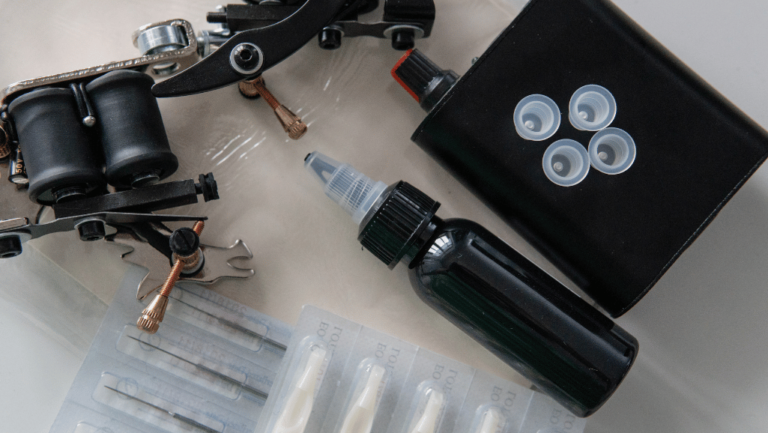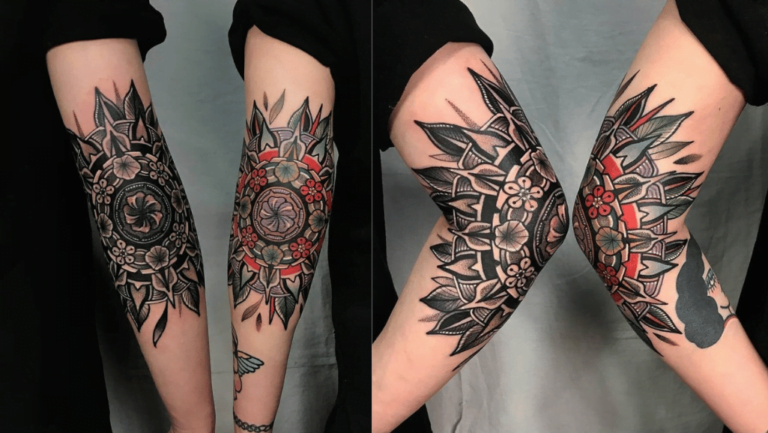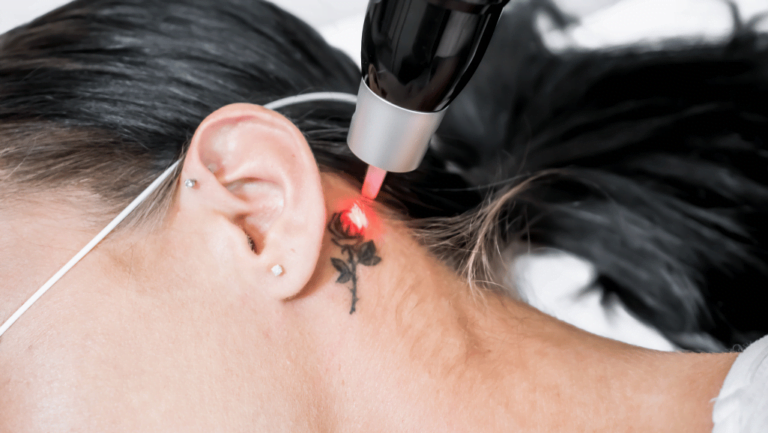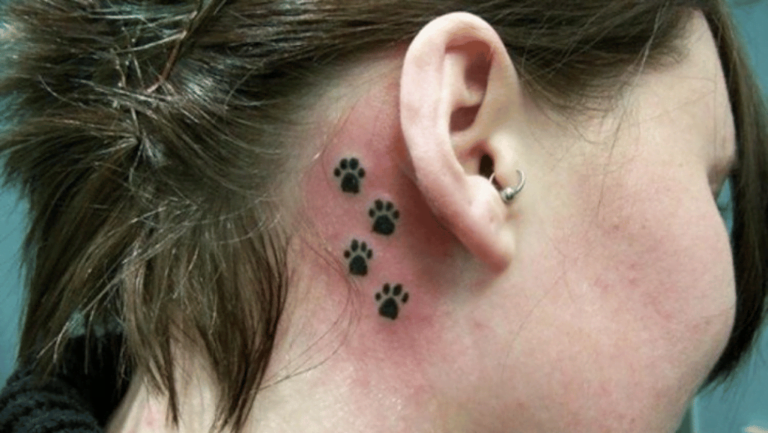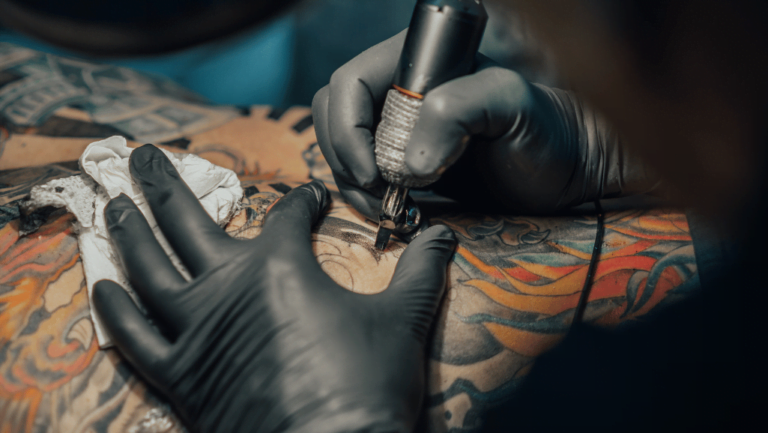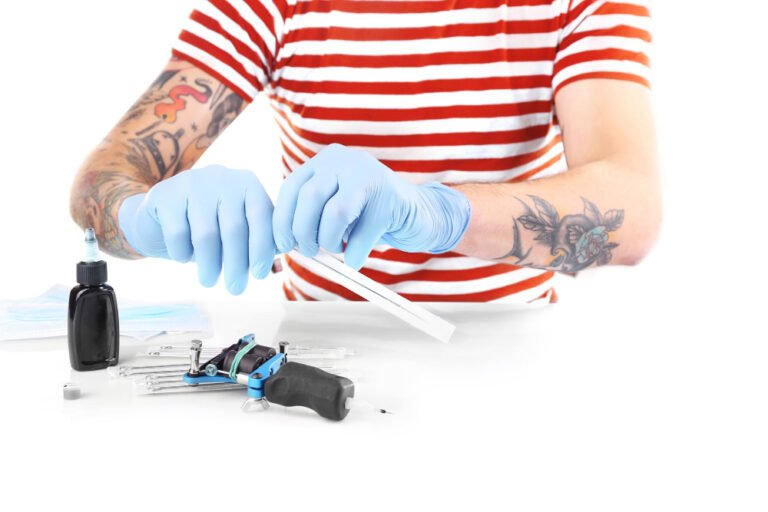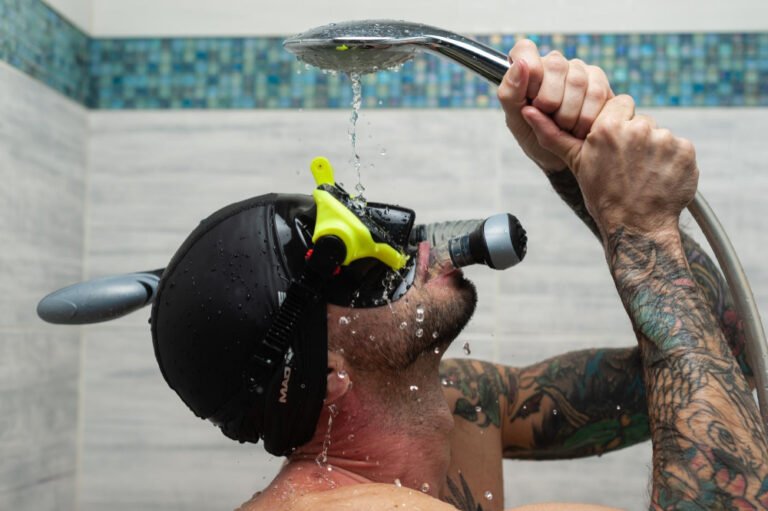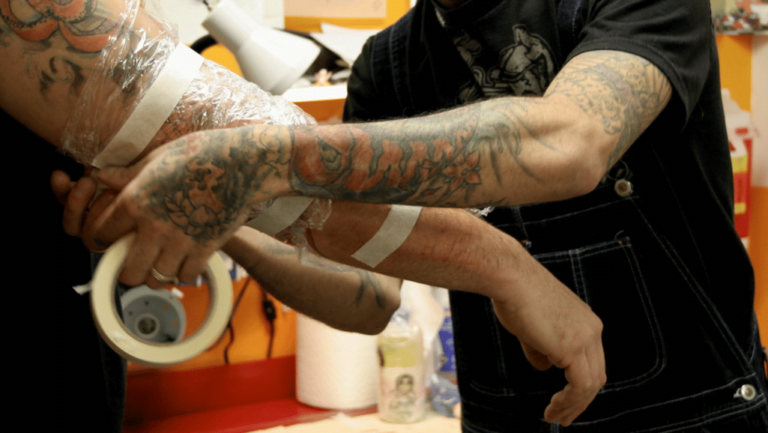In the United States, the legal age for getting a tattoo is generally 18 years old. However, most states allow individuals under 18 to get a tattoo with parental or guardian consent, although there may be exceptions in some states. It’s important to understand the specific age restrictions and requirements in your state if you’re considering getting a tattoo as a minor.
Furthermore, individual tattoo artists may enforce their own restrictions based on personal beliefs or preferences. They may choose to limit the type of tattoos they are willing to do for minors or even refuse clients under a certain age, regardless of parental consent.
It’s essential to navigate the age restrictions and guidelines surrounding tattoos responsibly and make informed decisions that prioritize safety. In the following sections, we will delve into the legal age requirements for tattoos in different states, as well as explore tattooing laws in Canada, Australia, and the United Kingdom.
Key Takeaways:
- In the United States, the legal age for getting a tattoo is 18, but parental consent may allow minors to get tattoos in some states.
- Individual tattoo artists may have their own restrictions for tattooing minors.
- Canada, Australia, and the United Kingdom also have varying laws regarding the legal age for getting a tattoo.
- Tattoo age restrictions are in place to protect minors and ensure safety standards are met.
- Research your state or country’s specific laws and consult with reputable tattoo artists to navigate the age restrictions responsibly.
Legal Age for Tattoos by State
Each state in the United States has its own specific laws and regulations regarding the legal age for tattoos with parental consent. Here is a breakdown of some states and their laws:
| State | Minimum Age | Parent/Guardian Requirement | Additional Restrictions |
|---|---|---|---|
| Alabama | No specified minimum age with informed written consent | Parental consent required | N/A |
| Alaska | 18 years old | Parent/guardian written consent and presence during the procedure | N/A |
| Arizona | No specified minimum age | Parent/guardian must be physically present | N/A |
| Arkansas | 18 years old | Parent’s signature and no exceptions | N/A |
| California | 18 years old, except for ear piercings | Parental consent required | N/A |
| Colorado | 18 years old | Express written consent of the parent or guardian | N/A |
| Connecticut | No specified minimum age | Parent/guardian permission required | Requires a physician or RN present during the tattooing process |
| District of Columbia | 18 years old, except for ear piercings | Parental consent required | N/A |
| Delaware | 18 years old | Notarized written consent required | N/A |
| Florida | 16 years old | Parent or guardian present and notarized consent | N/A |
… (Continued for all states)
Tattooing Laws in Canada, Australia, and the United Kingdom
When it comes to tattooing laws, different countries have varying regulations regarding the minimum age for getting a tattoo with parental consent. This section will explore the tattooing laws in three countries: Canada, Australia, and the United Kingdom.
Canada
In Canada, the minimum age for getting a tattoo varies by province. In Ontario, individuals under the age of 18 are required to have written parental consent. However, in Quebec and Nova Scotia, while there are recommendations regarding age, there are no strict laws governing tattooing with parental consent.
Australia
In Australia, most states have set the minimum age for getting a tattoo at 18 years old. However, there are exceptions in Western Australia, where 16-year-olds can get a tattoo with written parental consent.
United Kingdom
The United Kingdom has a strict policy when it comes to tattooing minors. Regardless of parental consent, no one under the age of 18 is allowed to get a tattoo in the UK.
It’s essential to note that these are just a few examples, and tattooing laws can vary in other countries as well. For instance:
- Austria, Germany, and Denmark also have a minimum age of 18 for getting a tattoo, with some exceptions.
- Countries like Bulgaria, Czech Republic, and Hungary have no specific age restrictions for tattooing.
| Country | Tattooing Age with Parental Consent | Underage Tattoo Laws |
|---|---|---|
| Canada | Varies by province (e.g., written parental consent in Ontario) | No strict laws (e.g., Quebec, Nova Scotia) |
| Australia | Most states – 18 years old | Western Australia – 16 years old with written parental consent |
| United Kingdom | No one under 18 is allowed to get a tattoo | Regardless of parental consent |
| Austria, Germany, Denmark | Minimum age of 18 with some exceptions | N/A |
| Bulgaria, Czech Republic, Hungary | No age restrictions | N/A |
It’s important to be aware of the specific laws and regulations in your country and consult with reputable tattoo artists who can provide accurate guidance. Now that we’ve explored the tattooing laws in different countries, let’s move on to discussing the reasons behind these age restrictions.
Reasons Behind Tattoo Age Restrictions
Tattoo age restrictions are put in place for a variety of reasons, with two main considerations standing out. The first reason revolves around an old school mentality held by legislators, often stemming from older and more conservative generations. These individuals advocate for tattoo restrictions based on their personal perspectives on body art. As a result, obtaining tattoos can become challenging, with some jurisdictions even going as far as banning them entirely. Consequently, tattoo shops face the difficult task of complying with these laws while still meeting the needs and desires of their clientele.
The second significant reason behind tattoo age restrictions is the recognition of tattooing as a medical procedure. This perception establishes the need for specific standards to be met to ensure the safety and well-being of individuals seeking tattoos. Tattooing poses certain risks, particularly for minors, such as the potential spread of viruses and infections if the equipment used is not adequately sterilized. By implementing age restrictions, authorities aim to protect minors from these hazards and uphold the necessary standards for safer tattooing practices.
To summarize, tattoo age restrictions are driven by a combination of old school mentalities and the acknowledgment of tattooing as a medical procedure. By considering these factors, lawmakers aim to strike a balance between individual freedoms and public safety.
What States Can You Get a Tattoo at 14?
While the legal age for getting a tattoo in most states is 18, there are at least 24 states in the United States that allow 14-year-olds to be tattooed legally with parental consent. This means that if a 14-year-old has the permission and support of their parent or legal guardian, they can legally get a tattoo in these states.
However, it’s important to note that even if a state permits tattooing at a younger age with parental consent, individual tattoo artists may still have their own restrictions and guidelines. Many tattoo artists may refuse to tattoo anyone under the age of 15 or 16 for safety and liability reasons.
Each tattoo artist has their own policies and may have concerns about the physical and emotional readiness of individuals at such a young age. The decision to tattoo a minor is a personal one for each artist, and it’s crucial to respect their professional judgment.
The bottom line is that while there are states that allow 14-year-olds to be tattooed with parental consent, it’s essential to research the laws specific to your state and consult with reputable tattoo artists who adhere to legal and ethical standards.
Image: The above image shows a person, with their parent’s consent, receiving a tattoo at the age of 14.
Legal Age for Tattoos in North Carolina
In North Carolina, the legal age for getting a tattoo is 18 with no exceptions. Tattooing a minor is prohibited, and anyone who tattoos a minor can face prosecution and fines. North Carolina has specific laws in place to ensure that individuals under the age of 18 are not able to get tattoos without proper consent and verification of age.
If you’re considering getting a tattoo in North Carolina, it’s crucial to understand the legal requirements to comply with the state’s tattoo laws. The age restriction of 18 is in place to protect minors and promote responsible decision-making regarding body modifications. Tattoo artists and studios are obligated to follow these laws to avoid legal repercussions.
Tattoo Laws in North Carolina
North Carolina Statute § 14-400 prohibits tattooing anyone under the age of 18 without exception. It is a Class 2 misdemeanor to tattoo a minor, and tattoo artists found guilty can face fines and potential imprisonment. The law aims to protect the health and well-being of minors by ensuring that they have the maturity and comprehension required to make such permanent decisions.
Prior to getting a tattoo in North Carolina, individuals are required to provide valid identification to prove their age. Tattoo studios in the state typically require a government-issued ID, such as a driver’s license or passport, to verify the customer’s age.
Tattoo Studios and Age Verification
Tattoo studios in North Carolina take the legal age requirement seriously and prioritize the safety of their clients. Reputable studios will always request proof of age to comply with the law and ensure that their customers are of legal age. They may also have additional policies in place, such as parental consent forms, to double-check and document their clients’ eligibility.
When visiting a tattoo studio, it’s essential to be prepared with proper identification to avoid any confusion or complications. Make sure to bring a valid government-issued ID with you when discussing tattoo designs and appointments with the artist.
By adhering to North Carolina’s tattoo laws and regulations, both individuals seeking tattoos and tattoo artists can create a safe and responsible environment for body art. It’s essential to respect the legal age restriction in place and make informed decisions when considering permanent tattoos.
Tattooing Laws and Regulations Summary
Understanding tattooing laws and regulations is crucial for navigating the tattooing landscape. In the United States, the minimum legal age for getting a tattoo is 18 in all states, with a few exceptions where parental consent is considered. It’s important to note that underage tattoo laws vary from state to state, and it’s essential to research and understand the specific laws in your jurisdiction.
Other countries, such as Canada, Australia, and the United Kingdom, also have their own age requirements for tattooing. These requirements may differ significantly from those in the United States, so it’s vital to be aware of them if you plan to get a tattoo in another country.
Tattoo age restrictions exist for various reasons. One significant reason is the recognition of tattooing as a medical procedure. Due to the potential health risks associated with tattooing, especially for minors, many jurisdictions have implemented age restrictions to ensure proper safety measures are adhered to. This helps protect minors from potential health complications that may arise from tattooing.
Personal beliefs and societal norms also influence tattoo age restrictions. In some cases, legislators, often from older and more conservative generations, may impose restrictions based on their views on tattoos. These restrictions can make it challenging for individuals, especially those under the age of 18, to get a tattoo.
To ensure compliance with tattooing laws and regulations, it’s essential to consult with reputable tattoo artists who are knowledgeable about the specific requirements in your jurisdiction. They can provide guidance on age restrictions, parental consent, and any additional regulations that may apply. By working with professionals, you can ensure a safe and legal tattooing experience.
When considering getting a tattoo, take the time to research and understand the laws specific to your state or country. This will help you navigate the tattooing process and ensure that you are making an informed decision.
A Comparison of Tattoo Age Restrictions in the United States, Canada, Australia, and the United Kingdom
| Country | Minimum Age | Parental Consent Required |
|---|---|---|
| United States | 18 (with exceptions in some states) | Yes |
| Canada | Varies by province | Yes (in some provinces) |
| Australia | 18 (with exceptions in some states) | Yes |
| United Kingdom | 18 | No |
While these are general overviews of tattoo age restrictions, it’s important to research the specific laws and regulations in your jurisdiction before getting a tattoo.
Conclusion
Navigating tattoo age restrictions can be complex, as laws vary by state and country. Before considering getting a tattoo, it is crucial to understand the legal age requirements and parental consent guidelines in your jurisdiction. Researching and familiarizing yourself with these laws will help ensure compliance and a smoother tattooing process.
In addition to legal requirements, it is essential to consult with professional tattoo artists who adhere to both legal and ethical standards. By seeking out reputable artists, you can trust that they will prioritize your safety and well-being throughout the tattooing process.
Remember, tattoos are permanent, and making informed decisions is crucial. Take the time to carefully consider your choices and prioritize safety when it comes to body art. By understanding and respecting underage tattoo laws, you can navigate the process confidently and responsibly.
FAQ
What is the legal age to get a tattoo with parental consent?
What are the age requirements for getting a tattoo in the United States?
What are the tattoo age restrictions in Canada, Australia, and the United Kingdom?
Why are there age restrictions for getting a tattoo?
In which states can you get a tattoo at the age of 14?
What is the legal age for getting a tattoo in North Carolina?
What is a summary of tattooing laws and regulations?
Are there any additional tips for navigating tattoo age restrictions?
Forhad
Forhad's writing is not just about the artistry of tattoos or the latest trends in the industry; it's an exploration of the deep-rooted connections people have with their tattoos, reflecting personal narratives, cultural histories, and moments of transformation. Through a mix of in-depth features, personal narratives, and insightful analyses, he sheds light on the multifaceted nature of tattooing, revealing the emotional and cultural layers that lie beneath the surface.






